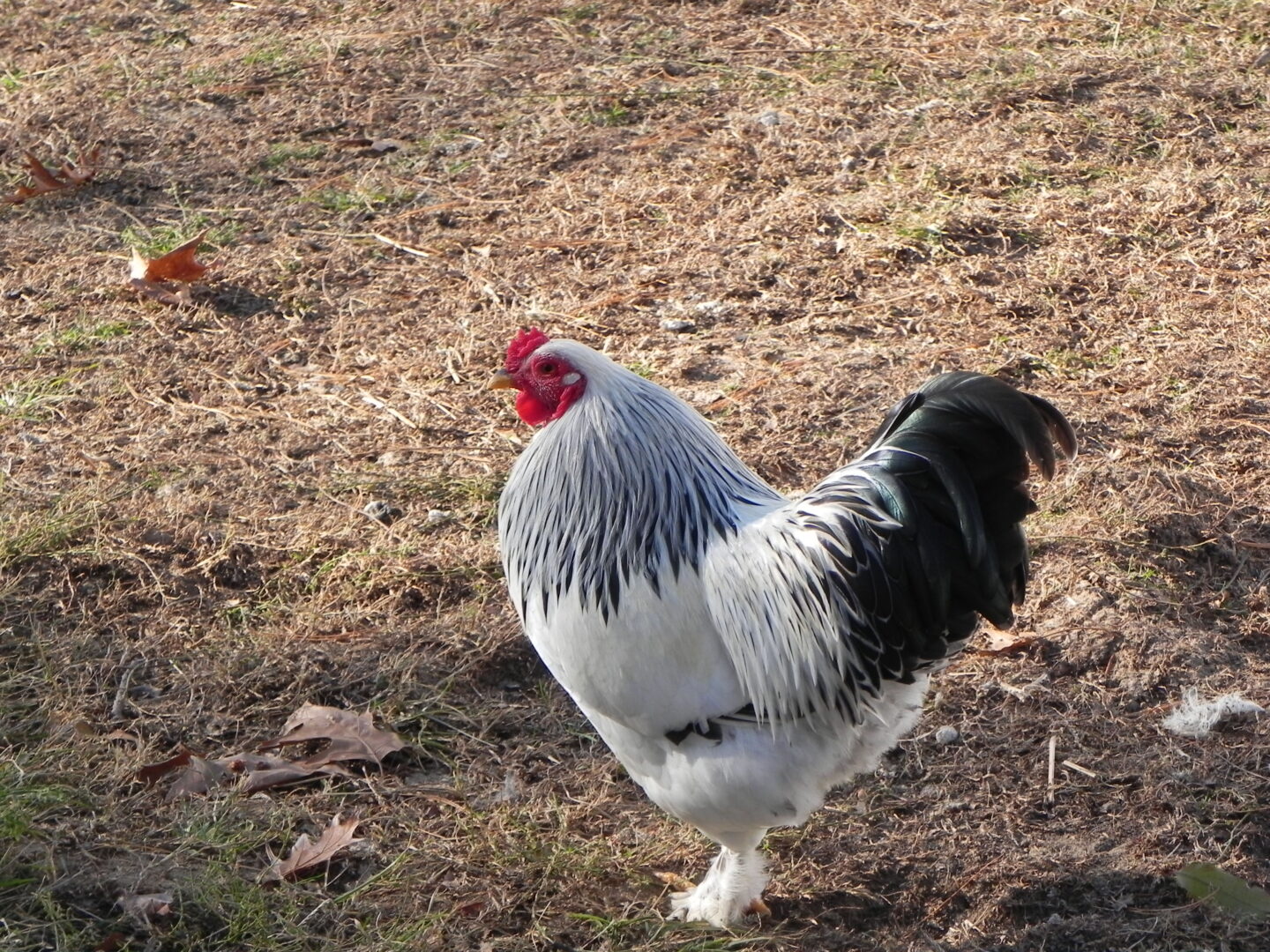Keeping a Rooster

Neighbors of a family keeping a few backyard hens may not even be aware there are chickens nearby. Hens cackle occasionally but the sound doesn’t carry. Roosters, however, are a different story. They announce the dawn with repeated crows that can permeate a large neighborhood, advertising the presence of a chicken flock. Because so many people don’t appreciate an early morning racket, most towns that allow people to keep hens forbid roosters.
However, keeping a rooster is an interesting part of the poultry raising experience and those who can legally keep one enjoy the interesting dynamics he brings to the flock. Fertile eggs and gorgeous colored feathers are bonuses added by a male bird, even though he lays no eggs and eats costly feed.
Roosters grow larger than hens of the same breed and have an instinct to protect the girls. While some roosters are non-aggressive and never threaten humans, others work overtime to intimidate an approaching human.
If a rooster is to be part of the flock a few tips may help in keeping him a more pleasant experience:
- Acquire a rooster that’s not overly aggressive. This is easier said than done, as the personality of the bird may not be known until he’s well established. If buying a rooster from someone who has several ask for the one that’s least aggressive.
- Never let the rooster intimidate you or any other human. An aggressive rooster will try to make a person number two on the pecking order. He will puff up his feathers, cluck or crow loudly, and aggressively approach a person. The bird must be convinced that humans are number one and he’s number two on the pecking order. Once he recognizes that he is number two, you should get along peacefully.
- Keep children safe. Young kids are not much taller than a big rooster, and the bird could attempt to intimidate them resulting in a traumatic experience for children.
